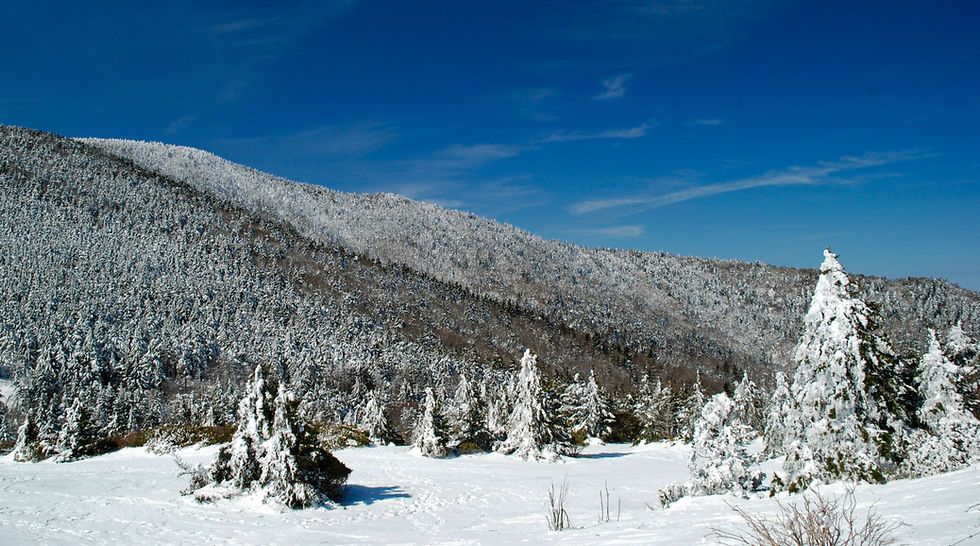Fred Chappell
- appalachianplaces
- Feb 15, 2022
- 3 min read
Updated: Feb 18, 2022
February 15, 2022


In the day when I collected shames
by dozens, shaping myself a proper fool
in most improper fashion, earning the names
that characterized my convoluted soul,
I was unaware that I harmed anyone.
My purposes were molded by ideals
that could motivate only some lone,
self-deluded individuals.
You were the Susan I could not comprehend.
How could you love me, strayed from a universe
wherein the laws were questions without end
and every blessing might prove to be a curse?
How would I trust me not to do you hurt?
My love for you cowered in me inert.
(Petrarch, 1)

The snowbank feels the starlight on its skin
as effervescence, scintillate needlepoint
that inscribes with silence the motions of the skies.
This minute scripture keeps a strict account
of unruly meteors and the serene spin
of moon above the unresisting seas.
Starlight underscores the prescient silence
the patient snow receives and holds within.
All that is, awaits. Snow crystals gleam
at all their points, distinctly separate.
The sky has poured its diamonds upon the field,
an incremental mantle, dust of light,
a presence sky-wide dispersion had concealed,
resplendent now as droplet beads of flame.

The wine labors to gentle my chagrin.
The plaint of mourner thousands seems to subside
like echoes that sound twice and then again,
lamentations ever multiplied,
until in time they choir in one refrain
to sing the names of everyone who died,
and those who loved them as their dearest kin.
And so I pour another glass or three,
as if I might conjure a drowsy distance
between myself and the rending persistence
of the stridulent omnipresent threnody.
But this dark vintage will not diminish sorrow
in its descant on our ruthless tomorrow.

Jesus each day in heaven visits the cottage
where my mother tends her grateful flowers.
They sit in rocking chairs upon the porch
until the hour for her to bathe his feet.
He frowns. "Oh, let us not untidy ourselves."
"This much at least," she says, "you won't begrudge."
Now he in his turn bathes my mother's feet.
Thus, the amenities ... They resume their prattle
of the rakish misadventures of Gabriel,
of the colorful sins of saints before sainthood,
missteps we all pretend to have forgotten.
They remark upon the ever pleasant weather
and watch celestial beetles annoy the roses;
and then at sundown Jesus suggests a prayer:

When Psyche blows soap bubbles with her pipe
they roll and waft and double-dip the air
in graceful frolic, silent, debonair,
as if the breeze directed them to slip
in waltz time through this world that they display
as rainbows on their bright rotundities,
to celebrate each separate demise,
each sphere spritzing as it goes away.
Chronos' pipe is carved of human bone;
the bubbles he produces are misshapen,
withered like grapes by a relentless sun,
their colors dark; and it may often happen
they disappear as soon as they appear
and mark no time to tell they ever were.

Every moment possesses a soul indifferent
to possession, desiring nothing for itself
but simple habitation: an instant of delight,
a flash of gratitude, a single musical note
and its overtone, the echo of the intonation.
Three moments the mourning dove inspirits
with cool tones, each the soul of its moment,
none possessing it. Lonely and communal,
the music speaks but does not declare.
The tones are lonely but never alone,
like the courageous woman and her loving sisters
conversing quietly in a time of grief.




Comments